Faculty of Biology and Biotechnology
Chair of Biotechnology
Today it is considered to be the first and the only department in Kazakhstan where research is being successfully done. The department trains specialists in biochemistry, microbiology, biotechnology of microorganisms, plants and animals, environmental biotechnology, bioinformatics and ecosystem modeling.

Head of the department
Kistaubayeva Aida Serikovna
Department contacts
al-Farabi ave, 71, MEB 3
History of the department
The Department of Plant Physiology and Microbiology at S.M.Kirov Kazakh State University was founded in January 15, 1938. From 1947 to 1999, it was called the Department of Plant Physiology and Biochemistry. In 1972, “Department of Microbiology” was separated from this department. Because of the fusion in 2011 “Department of Biotechnology, Biochemistry, Plant Physiology” and “Microbiology” a new “Department of Biotechnology” was established.
Today it is considered to be the first and the only department in Kazakhstan where research is being successfully done. The department trains specialists in biochemistry, microbiology, biotechnology of microorganisms, plants and animals, environmental biotechnology, bioinformatics and ecosystem modeling.
The department staff consists of 13 Professors, 16 Associate Professors and 3 PhD, 10 units of training and support staff. Doctoral students, undergraduates and undergraduate students actively participate in the implementation of scientific research.
The department actively conducts scientific research in the following areas:
- Physiology, biochemistry, biotechnology and ecology of plants, microorganisms and microalgaе
- Bioenergetics and biotechnology of phototrophic microorganisms
- Study of soil and water biocenoses to assess the state of environmental objects
- Development of biotechnological approaches to the assessment of the state of environmental objects
- Biotechnological principles of phyto - and bioremediation of disturbed ecosystems
- Biotechnology of creating biological products based on plants and microorganisms for remediation of contaminated soils and reservoirs
- Biotechnology of creating probiotic biological products based on microorganisms and microalgae
- Biotechnology for the creation of efferent-active drugs
- Food biotechnology. Creating new food products
- Bioinformatics, genomics, proteomics.
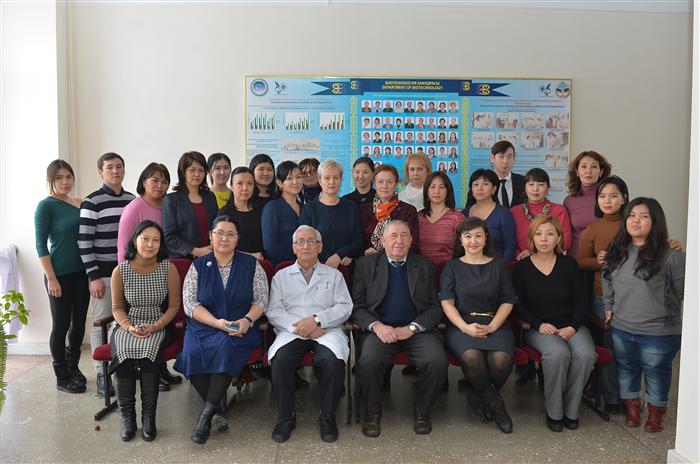
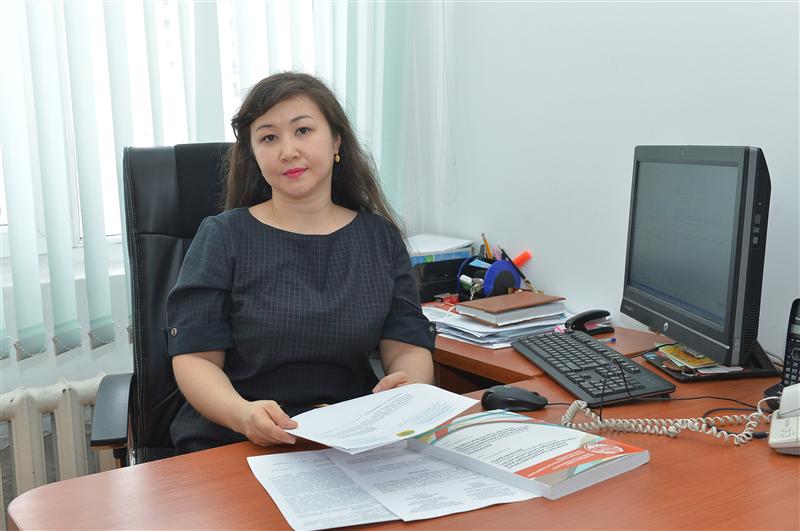
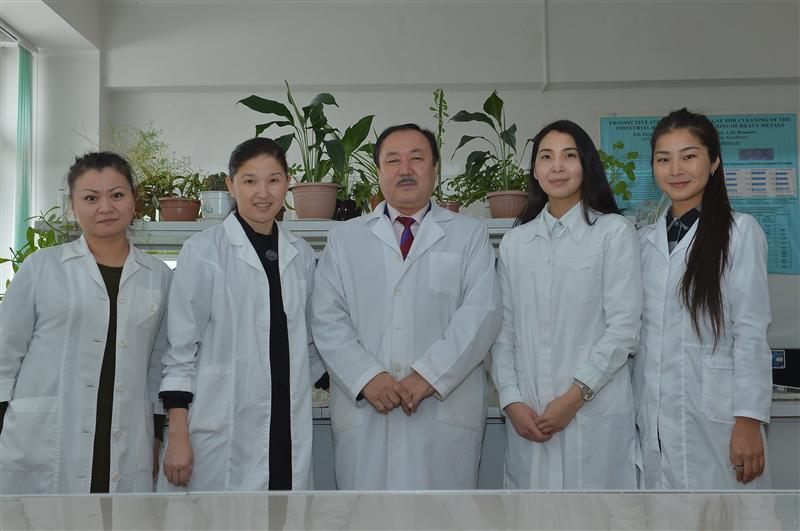
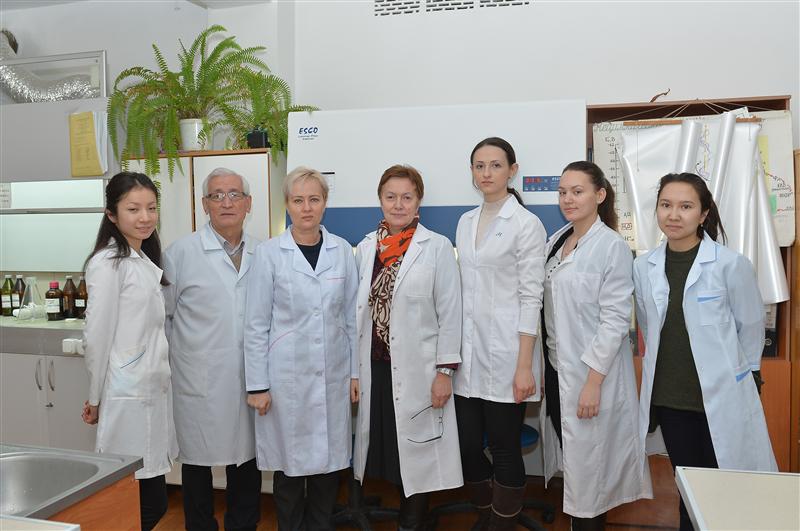
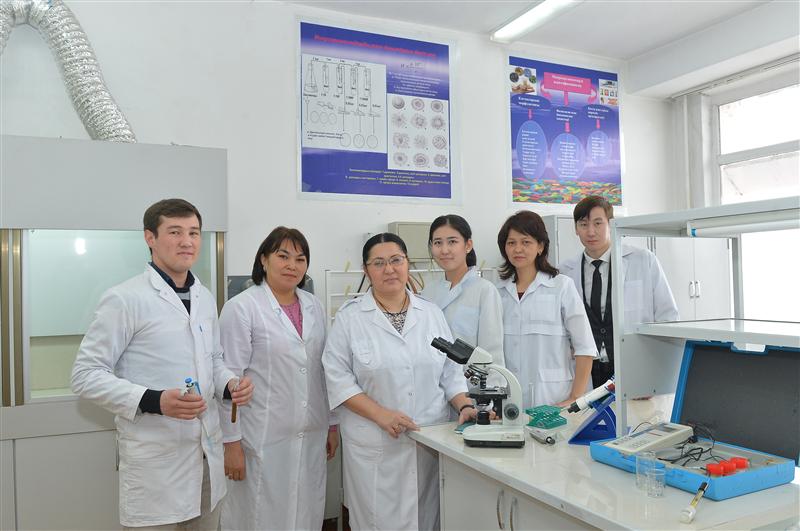

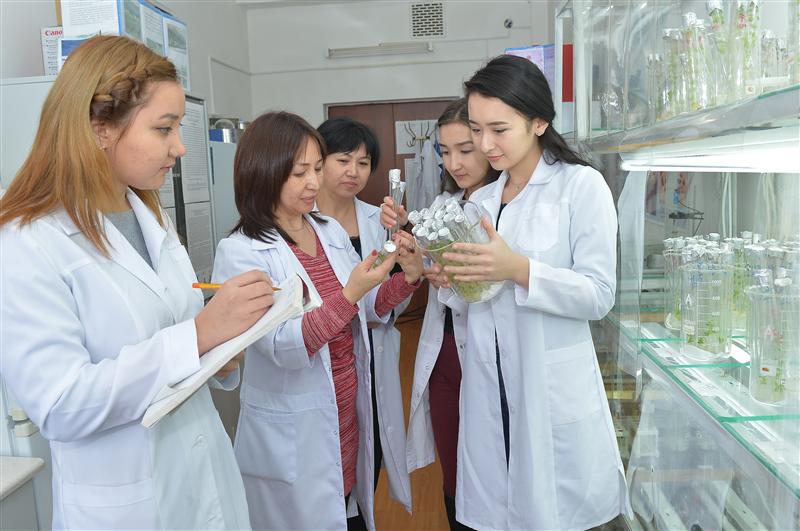
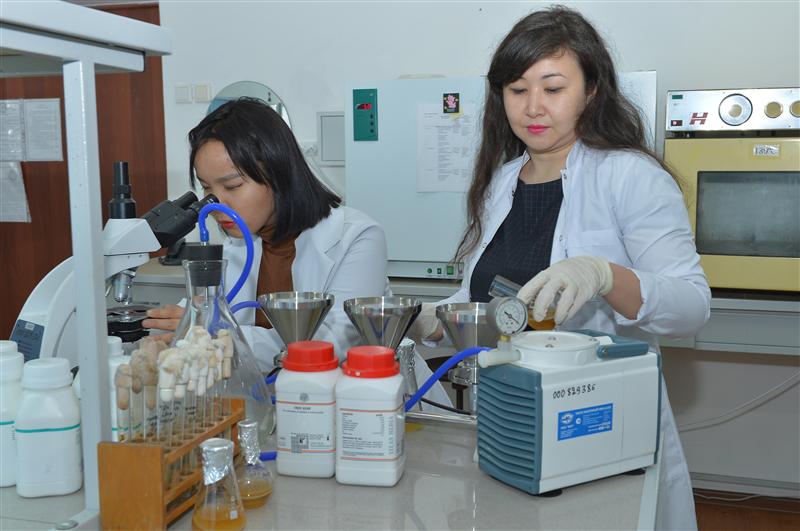

EDUCATIONAL PROGRAMS OF THE BIOTECHNOLOGY DEPARTMENT
B050 Biological and related sciences - undergraduate:
6B05101 – Biological engineering (in English): Field of activity of specialists in the field of bioengineering: obtaining and application of modified natural and artificial organisms; genomic and proteomic analysis; development of molecular diagnostic methods for diseases; obtaining drugs based on cell cultures.
6B05103 – Biotechnology, Biotechnology (NIS): Biotechnologist develops and uses techniques to increase the productivity of natural and organisms; owns the skills of cultivating biological objects and controlling the synthetic the production. Process work-flow for obtaining a biotechnological product; developing measures to improve the economic and production indicators of the biotechnological process; assesses compliance with the quality and safety of biotechnological products and industries; He owns methods of genetic and cellular engineering for the production of microbiological synthesis, bio catalysis and nanobiotechnology products. Biotechnologist can work as a technologist, engineer, researcher in food and pharmacological industries, in certification, environmental and research laboratories.
6B05107 – Microbiology: The microbiologist is engaged in the storage and maintenance of cultures and collections of microorganisms; develops and applies methods for their cultivation and preparation of biological products based on them; provides technological operation of industrial microbiological equipment; develops and implements measures to ensure biosafety; organizes and conducts sanitary product quality control. Microbiologist can work as a microbiologist technologist, laboratory assistant, sanitary expert, researcher and engineer in food and pharmacological industries, in certification and research laboratories, and sanitary surveillance authorities.
7М051 Biological and related sciences Master’s program:
M082 – Biotechnology – 7M05109: capable of implementing a biotechnological product management system in accordance with the requirements of Kazakhstan and international quality standards; ideally suited for work in the biotechnological, environmental, agricultural and pharmaceutical industries.
7М05114Virology: Education (to teach virological and biological disciplines in universities and other educational institutions of state and non-state profile);
7М05117 - Environmental bioengineering. Training of highly qualified personnel to work in the field of ecology, environmental authorities, companies engaged in water supply and sanitation, energy companies and waste management companies, engineering firms and research and production institutions.
The program 7М05116 Мicrobiology is aimed at training a competitive qualified specialist able to work effectively in the field of industrial, pharmaceutical, medical and environmental microbiology, with the possibility of employment in scientific, industrial, diagnostic and medical centers that develop and produce goods and services of microbiological and biotechnological sector, as well as in food and pharmaceutical industries.
8D051 – Biological and related sciences doctoral degree:
D082 – Biotechnology – 8D05105: Doctoral students who have successfully mastered the educational program in the specialty Biotechnology will be specialists who are competitive in the international labor market and will be able to realize themselves as: scientific staff at research institutes; teachers at universities.
8D05111-Microbiology - Training of highly qualified, internationally competitive scientific personnel capable of carrying out research, organizational and managerial activities of microbiology specialists for government organizations, firms, enterprises, companies and institutes of biological, medical, environmental, veterinary and agricultural profile, with knowledge based on modern interdisciplinary theories, lecturer in universities and molecular biological, biotechnological methods microbiological analysis in related fields of research.
8D05112 - Environmental bioengineering the educational program is aimed at training highly qualified personnel to work in the field of ecology, environmental authorities, companies engaged in water supply and sanitation, energy companies and waste management companies, engineering firms and research and production institutions, lecturer in universities. Graduates of the Environmental Bioengineering educational program can work in many industries, including chemical, pharmaceutical, water and wastewater treatment, mining and manufacturing, and can participate in hazardous waste disposal, air pollution control, facility planning and environmental consulting.
Grant and foreign projects
Documentation
22 мб, pdf
22 мб, pdf